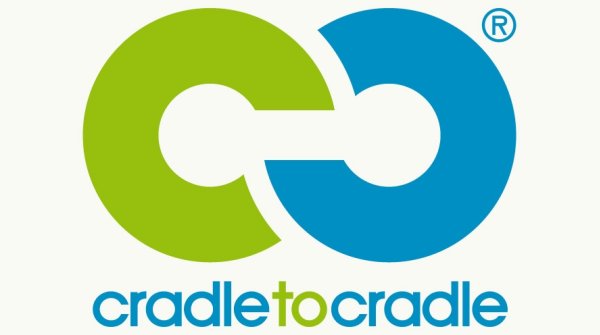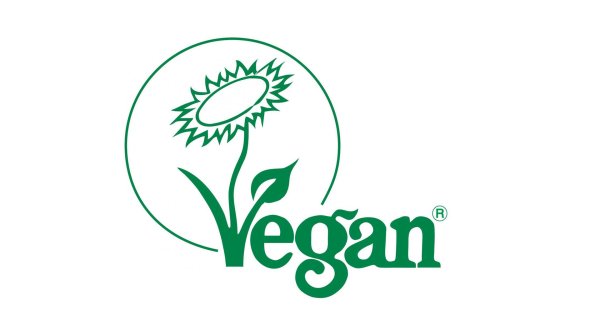There are plenty of seals and certificates for sustainable sports products. For example, they stand for ecological and social production, for compliance with animal welfare criteria, for sustainable disposal or for product safety. What all labels have in common is that they only cover partial aspects of the long process chain that a product today goes through from the extraction of raw materials to the manufacture of the product, its distribution and use and finally its disposal.
The last few years show: the more of these aspects are examined, the more seals there are. To ensure that they are always up to date with the latest findings, they are regularly reviewed and adapted. For example, the widely used GOTS standard in its latest version also allows the use of regenerated cellulose fibres in defined mixing ratios.
New labels are also being created, such as the Green Button in Germany, or they are suddenly becoming more relevant, such as the Biodegradable Standard of the Hohenstein Institute, which was developed as early as 2015 and is only now becoming more in demand as the topic of disposal becomes more important for manufacturers and consumers. Here is an overview of the most important labels and organisations on the subject of sustainability.
Labels that are created by companies themselves are problematic. This is increasingly the case. Buzzwords like "fair" and "green" are used by clothing companies like Primark to label their clothes. Greenpeace examined several labels of large corporations for their credibility. Vaude scored best with its "Green Shape" label. The experts found greenwashing in the majority of the labels, especially those from fast-fashion giants like Primark.
Bluesign Technologies AG from Switzerland has its roots in textile chemistry and developed the holistic "Bluesign System" based on the principle of Input Stream Management. This means that it excludes environmentally harmful substances from the manufacturing process right from the start and can thus ensure sustainable production, and the finished product also meets the strictest consumer protection requirements worldwide. Bluesign considers all effects on people, the environment and resource consumption. The aim is to reduce the ecological footprint along the entire value chain.
Bluesign Product: Seal with focus on textile chemistry
The companies are subjected to strict assessments to certify the chemical products, textile components and accessories produced. If a product is manufactured from "Bluesign Approved" (i.e. components certified by Bluesign), it may be awarded the "Bluesign Product" label. The Bluesign system is not limited to certain types of raw materials and fibres, nor to individual production steps or certain textile products.
At least 90 percent of a textile product must be Bluesign-certified. In addition, at least 30 percent of all ingredients such as zippers, buttons and embroideries must be Bluesign certified. The remaining maximum of ten percent of textiles and 70 percent of ingredients that are not Bluesign-certified must meet the strict limits of the Bluesign criteria for consumer protection.
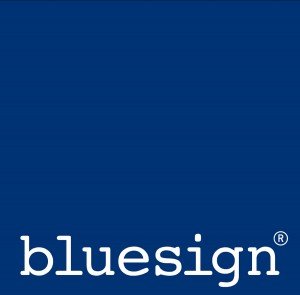
The former Fair Wear Foundation is now simply called Fair Wear. It was founded in 1999 in Amsterdam as a non-profit organisation. Its aim is to improve working conditions in the global garment industry. The focus is on the particularly labour-intensive production phase of ready-to-wear clothing, where the fabrics are sewn together to form finished textile products. At the heart of Fair Wear is a code of labour practices and workers' rights, the "Code of Labour Practices", which is based on international standards.
No certificates, but Leader Status
The following applies to Fair Wear: Permanent change does not happen overnight. And "100% fair" clothing remains a goal that can hardly be achieved. Therefore, the process-oriented approach of Fair Wear focuses on the practical steps brands can take to prevent problems in factories. This is why the organisation does not issue certificates; you can only become a member and then have the opportunity to advertise with the Fair Wear logo. Any brand that adheres to the principles and works to implement them can become a member. In this respect, Fair Wear sees itself as a learning initiative.
However, permanent membership is linked to how successfully a member implements the Code. Anyone who fails to meet basic requirements or fails to remedy deficiencies within a certain period of time loses membership. At the same time, particularly committed members can achieve "Leader Status" and use it to advertise. All brands are published on the website with the results of their audits.
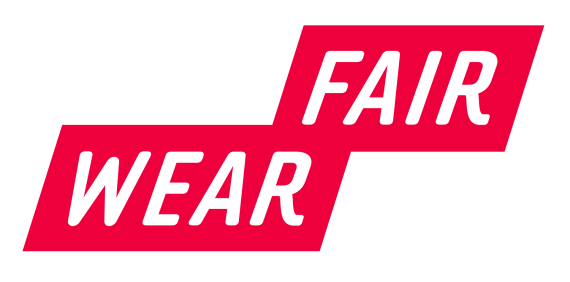
The Global Organic Textile Standard (GOTS) is considered the world's leading standard for the processing of textiles made from organically produced natural fibres. It covers the production, making up, packaging, labelling, trade and distribution of all textiles made from at least 70 percent controlled organically produced natural fibres.
2020 the GOTS version 6.0 was released. In it, the social requirements for production companies were further tightened. New possibilities have also arisen with regard to the permitted fibre blends. In the meantime, regenerated fibres such as Lyocell or recycled synthetic fibres such as recycled polyester may also be contained in the material in defined mixing ratios. The maximum proportion is 10 percent for Lyocell and 30 percent for recycled polyester.
The two label levels of the GOTS
The GOTS is available in two label levels: Basically only textile products can receive a GOTS label if they consist of at least 70 percent organically produced natural fibres. The GOTS label used here then bears the text: "Made from x percent organic/kbT fibres". The abbreviation organic farming stands for controlled organic cultivation, organic farming for controlled organic animal husbandry.
As soon as a product consists of at least 95 percent certified organically produced natural fibres, it may carry the GOTS label "kbA/kbT" or "Bio" or "organic" without having to indicate a percentage.

In 2019, the German government introduced the Green Button, the world's first state sustainability label for textile production. The seal is a "meta-seal" that builds on existing seals. Anyone wishing to have the button must therefore have previously received one or more of the seven reference seals recognised by the Federal Ministry for Economic Cooperation and Development (BMZ), and in such a way that all social and ecological criteria are covered. The approved seals include Blue Angel, Fairtrade, Fair Wear, Oeko-Tex Made in Green, Bluesign, Cradle-to-Cradle Silver, Global Organic Textile Standard (GOTS), Naturtextil IVN certified BEST and SA 8000.
The award of only one seal is intended to provide the consumer with a better overview. Currently 52 companies use the seal, including Vaude and Jack Wolfskin.
Two pillars: product and company
It is important to note that the Green Button can only be awarded if the company and product meet the required 20 or 26 criteria. In the introductory phase, which will last until mid 2021, the Green Button will not yet cover the entire supply chain, but only the production stages "cutting and sewing" and "bleaching and dyeing". In the coming years, the Green Button is to be extended to include further production steps.

The Responsible Down Standard (RDS) was created in 2014 and is now one of the most widely used down standards in the apparel industry. Originally initiated by The North Face, today the non-profit organisation Textile Exchange is responsible for the allocation and further development. The seal exclusively addresses the aspect of animal welfare. It aims to ensure that ducks and geese from which down is obtained are kept in accordance with various animal welfare criteria. For example, the down may only be obtained from slaughter pluck, i.e. it comes from dead animals. Live plucking is prohibited. The animals must be kept under conditions free of animal suffering and may not be force-fed. Since the 2019 revision, animals must also be stunned before slaughter. In addition, the breeding farms where the parent animals are kept are now also to be included in the inspection. It makes sense to include them because the parent animals in particular are threatened by live plucking due to their longer lifespan.
Goal: 100 percent animal-free down
Only products that contain 100 percent RDS down are allowed to carry the seal. An RDS certificate is valid for 14 months and within this period is checked by announced and unannounced inspections. The criteria and requirements of the standard are available in detail online. Worldwide 900 large and small farms have already been certified. Over 500 million animals are affected.
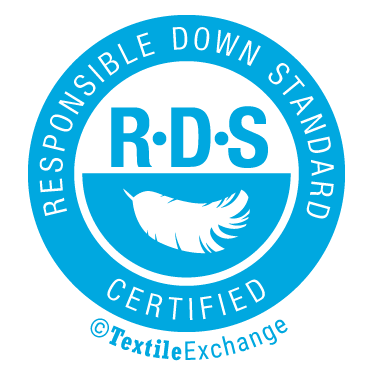
The Responsible Wool Standard (RWS) was launched in 2016 by the non-profit organisation Textile Exchange and is the result of an initiative by Textile Exchange and H&M. The certificate covers various areas. The focus of the seal is on animal welfare, sustainable management and soil protection and full transparency in the supply chain with an integrated traceability system. In the area of animal welfare, the standard prohibits, for example, the particularly controversial practice of mulesing.
Responsible Wool Standard: From farms to garment factories
The scope of the Responsible Wool Standard covers the entire value chain: from farms to wool producers and clothing factories. The main focus is on traceability, not on how the wool is further processed in the value chain.
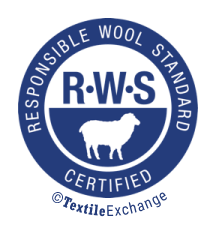
The Global Recycled Standard (GRS) is a product standard that controls the composition of products made from recycled materials. The aim is to achieve higher percentages of recycled materials in the products and to make the composition more transparent. The seal was created in 2008 and Textile Exchange has been the new owner since 2011.
Global Recycled Standard: Certificate for recycled products
GRS ensures the traceability of the recycled materials and verifies their composition. It also sets requirements for production in order to reduce harmful effects on humans and the environment. Each production stage must be certified, starting with the recycling stage and ending with the last seller in the last business-to-business transaction.
The GRS seal may be used for end products such as garments or home textiles if they consist of at least 20 per cent recycled materials.
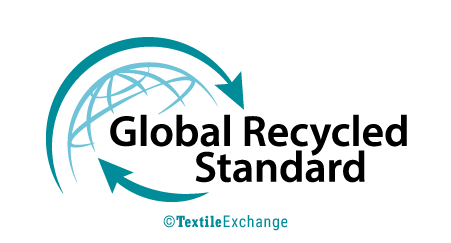
Fairtrade International created the first Fairtrade Cotton label in 2005 and extended the standard, which until then had specialised in food, to cotton for the first time. In 2016, a further seal was added for the textile industry, which focuses on other fibres and the entire supply chain: The "Fairtrade Textile Production" seal. It is intended to improve the working and living conditions of people in textile production.
An important feature of the Fairtrade textile standard is the stipulation that certified companies must undertake to implement living wages within six years. Other important requirements include occupational health and safety, a ban on forced labour and child labour, freedom of assembly for workers, a ban on harmful chemicals and the provision of training and education for employees.
The seal: Fairly produced fibres and fair production
To be able to use the textile seal on the finished product, the textile must consist of at least 50 percent Fairtrade cotton or other responsibly produced fibres. These include, for example, "Cotton made in Africa (CmiA)" and the "Better Cotton Initiative", as well as other organic-certified fibers according to national organic standards. The cellulose fibers of the Lenzing Group, such as Tencel, are also included. In addition, all factories of the next processing stages must be Fairtrade certified.

Here are more important sustainability labels for the sports industry:
 SustainabilityReady for the Green Deal? An Update for the Sports Industry
SustainabilityReady for the Green Deal? An Update for the Sports Industry
- Awards
- Mountain sports
- Bike
- Fitness
- Health
- ISPO Munich
- Running
- Brands
- Sustainability
- Olympia
- OutDoor
- Promotion
- Sports Business
- Textrends
- Triathlon
- Water sports
- Winter sports
- eSports
- SportsTech
- OutDoor by ISPO
- Heroes
- Transformation
- Sport Fashion
- Urban Culture
- Challenges of a CEO
- Trade fairs
- Sports
- Find the Balance
- Product reviews
- Newsletter Exclusive Area
- Magazine







